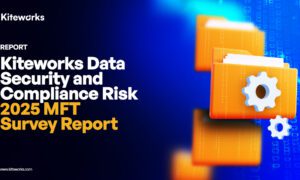In an era dominated by technology, cyberspace has become a crucial domain for defense and national security. Among the various branches of the military, the United States Air Force has taken on the formidable task of safeguarding the nation’s interests in this hidden world of cyberspace. This blog post aims to provide an insightful glimpse into the fascinating realm of Air Force cyber security, shedding light on its importance, challenges, and the dedicated individuals working tirelessly to protect our digital borders. Furthermore, we will explore the future of Air Force cyber security, delving into emerging technologies and strategies poised to shape this crucial field.
The Significance of Air Force Cyber Security
Air Force cyber security is more than just safeguarding data; it’s about protecting critical infrastructure, maintaining operational superiority, and countering cyber threats from adversaries. Here are a few key reasons why it’s vital:
National Security: The Air Force plays a crucial role in national security, and its cyber operations are an integral part of this. Cyberattacks can target national defense systems, and the Air Force is at the forefront of defending against these threats.
Operational Advantage: Modern warfare relies heavily on technology. Air Force cyber security ensures that our military’s technological edge remains intact, enhancing mission success.
Economic Stability: Cyberattacks can have devastating effects on the economy. By protecting critical infrastructure, the Air Force contributes to the stability and prosperity of the nation.
Challenges Faced in the Cyber Domain
Rapidly Evolving Threats: Cyber threats are constantly evolving. Adversaries use sophisticated techniques, making it imperative for the Air Force to stay ahead.
Limited Workforce: There is a shortage of skilled cyber professionals, both in the Air Force and the civilian sector. Recruiting and retaining top talent is a challenge.
Balancing Security and Usability: The Air Force must ensure stringent security measures do not hinder the usability and effectiveness of its systems.
The Heroes Behind the Screens
In the clandestine world of Air Force cyber security, the unsung heroes are the men and women who dedicate their lives to defending our nation in the digital realm. While their work may not always be in the spotlight, their contributions are invaluable. Let’s take a closer look at the roles and responsibilities of these remarkable individuals:
Cyber Operators: At the front lines of Air Force cyber security are the cyber operators. These highly trained airmen are responsible for operating, monitoring, and defending the Air Force’s networks and systems around the clock. They are the first responders when a cyber threat is detected, swiftly mitigating and neutralizing potential risks. These dedicated professionals are the guardians of our digital borders, ensuring that the Air Force’s systems remain secure and operational.
Cyber security Specialists: Cyber security is a complex field that demands specialized expertise. Cyber security specialists within the Air Force are experts in various domains of cybersecurity, from network security to encryption methods, from threat analysis to vulnerability assessment. They play a critical role in analyzing threats, developing strategies to counter them, and constantly staying one step ahead of adversaries. These specialists are the architects of the digital fortifications that protect sensitive military information and critical infrastructure.
Innovators: The world of Air Force cyber security is in a perpetual state of evolution. Innovators within the Air Force are at the forefront of cutting-edge technologies and solutions. They research, develop, and implement advanced cyber tools and tactics to maintain superiority in the cyber domain. These creative individuals are essential in keeping the Air Force one step ahead of its adversaries. Whether it’s pioneering new cybersecurity software or devising innovative strategies to counter emerging threats, innovators are the driving force behind the continuous improvement of the Air Force’s cyber defenses.
Educators and Trainers: To maintain a highly skilled workforce, the Air Force invests in education and training. Educators and trainers in the field of cyber security are responsible for imparting knowledge, skills, and best practices to the next generation of cyber professionals. They ensure that airmen are well-prepared to face the ever-evolving challenges of the digital age. These educators play a crucial role in the ongoing development of the Air Force’s cyber workforce.
Collaborators: Cybersecurity is not a solitary endeavor. Collaboration with other branches of the military, intelligence agencies, and international partners is essential. Cybersecurity experts within the Air Force work closely with counterparts from other organizations to share information, intelligence, and best practices. This collaborative approach strengthens our collective defense against cyber threats and ensures that the Air Force remains a formidable force in the digital realm.
The Future of Air Force Cyber Security: Emerging Technologies and Strategies
As we peer into the future of Air Force cyber security, we find a landscape filled with exciting possibilities and new challenges. Here are some of the key areas where emerging technologies and strategies are poised to shape the future:
Artificial Intelligence (AI) and Machine Learning: AI can greatly enhance threat detection and response. Machine learning algorithms can analyze vast amounts of data to identify anomalies and potential threats, allowing for more proactive cybersecurity measures.
Quantum Computing: Quantum computing may hold the potential to both revolutionize cryptography and pose new security challenges. Air Force cyber security experts will need to adapt to the changing landscape.
Advanced Encryption Techniques: With the increasing power of computers, the Air Force must continually improve its encryption methods to protect sensitive data from increasingly sophisticated attacks.
Collaboration and Information Sharing: Improved cooperation with other branches of the military, intelligence agencies, and international partners will be essential in addressing complex cyber threats.
Conclusion
The hidden world of Air Force cyber security is as critical to national defense as traditional military operations. It’s a domain that requires constant vigilance, adaptability, and innovation. The people serving in this capacity are dedicated to protecting the nation from ever-evolving threats in cyberspace. Their work is indispensable, and we owe them our gratitude for keeping our nation safe in this hidden world. With the integration of emerging technologies and innovations, the future of Air Force cyber security is promising, and the nation’s digital security digital realm is in capable hands.



































